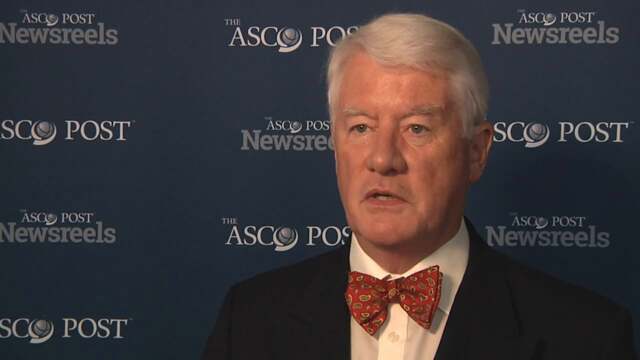Eric Van Cutsem, MD, PhD, and Axel Grothey, MD, on HERACLES and Other Colorectal Cancer Findings
2015 ASCO Annual Meeting
Eric Van Cutsem, MD, PhD, of University Hospitals Gasthuisberg/Leuven, and Axel Grothey, MD, of the Mayo Clinic, discuss the Italian-led study on trastuzumab and lapatinib in HER2-amplified metastatic colorectal as well as other colorectal cancer findings discussed at ASCO (Abstract 3508).
John Smyth, MD
John Smyth, MD, of the University of Edinburgh, discusses oncology from an international point of view.
Areej El-Jawahri, MD, and Eric Roeland, MD, FAAHPM
Eric Roeland, MD, FAAHPM, of the University of California, San Diego Moores Cancer Center, and Areej El-Jawahri, MD, of Massachusetts General Hospital, discuss two important studies on early palliative care and the use of anamorelin in advanced NSCLC with cachexia.
Christopher Sweeney, MBBS
Christopher Sweeney, MBBS, of Dana-Farber Cancer Institute discusses the EnzaMet and EnzaRad study designs, eligibility requirements, and endpoints (Abstracts TPS5077 and TPS5078).
Tony Mok, MD, and James O. Armitage, MD
James O. Armitage, MD, of the University of Nebraska Medical Center, and Tony Mok, MD, of The Chinese University of Hong Kong, discuss oncology from an international point of view.
Howard M. Sandler, MD, and Christopher Sweeney, MBBS
Christopher Sweeney, MBBS, of Dana-Farber Cancer Institute, and Howard M. Sandler, MD, of Cedars-Sinai Medical Center, discuss the improvement of overall survival with the use of adjuvant chemotherapy following androgen suppression and radiotherapy (Abstract LBA5002).





